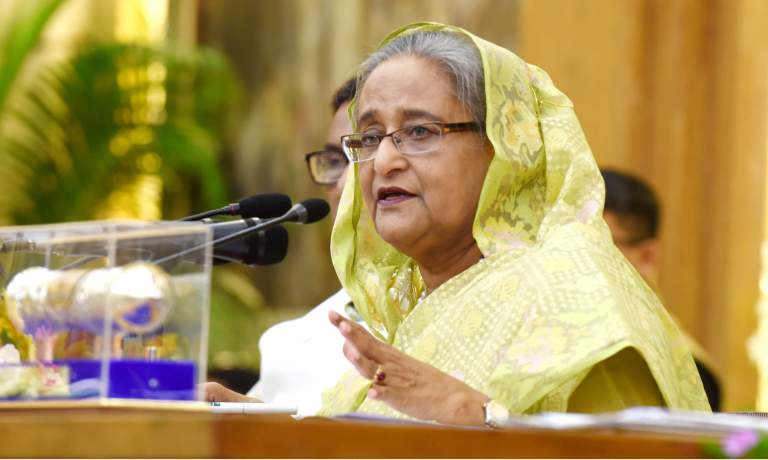Those who led the mass movement in protest of human rights violations and suppression of opposition during Sheikh Hasina’s 15-year rule are demanding that she be brought back from India to face trial.
However, repatriating the 76-year-old Hasina could risk tarnishing India’s standing with its other South Asian neighbors, particularly at a time when India is vying for dominance in the region against China. This could create a negative perception among some observers.
Thomas Kin, from the conflict resolution think tank International Crisis Group, told AFP, “India clearly does not want to send her back to Bangladesh. This would send a message to other leaders in the region who have good relations with New Delhi… that ultimately, India will not protect you. This wouldn’t be very positive for India.”
Last year, a new president was elected in the Maldives, who quickly shifted strategically toward Beijing instead of New Delhi. With Hasina’s downfall, India lost its closest ally in the region.
Many of those who were oppressed under Sheikh Hasina’s rule blame India for the atrocities committed by her government. Indian Prime Minister Narendra Modi’s Hindu-nationalist diplomacy has also contributed to this antagonism.
Nobel Peace Prize laureate Muhammad Yunus, aged 84, has pledged to support an interim government, which Modi has endorsed. Modi has repeatedly urged Yunus’s administration to protect Hindus in Bangladesh.
During his speech from the 17th-century Red Fort on India’s Independence Day, Modi mentioned the plight of Bangladeshi Hindus and later brought up the issue during a phone call with US President Joe Biden.
After Hasina’s fall, there were some attacks on Hindu individuals and temples in the ensuing chaos. These incidents were condemned by both the protesters and the interim government in Bangladesh. However, some pro-government media outlets in India exaggerated these events, spreading negative perceptions about Bangladesh’s situation.
Mirza Fakhrul Islam Alamgir, the Secretary General of the Bangladesh Nationalist Party (BNP), stated that India “put all its eggs in one basket” by supporting Hasina and failed to see how the situation might change.
One of the thousands of BNP leaders and activists arrested during Hasina’s regime, Mirza Fakhrul told AFP, “The people of Bangladesh want good relations with India, but not at the cost of their own interests.”
He added, “Unfortunately, India’s attitude has not been conducive to fostering this trust.”
Amidst this distrust and suspicion, both countries were hit by severe floods in August. Many Bangladeshis blamed India for the flooding.
The interim government of Bangladesh has yet to publicly raise the issue of Hasina seeking asylum in India. However, with her diplomatic passport revoked, it has become difficult for Hasina to travel to another country from the military base in India where she is currently staying.
A bilateral repatriation agreement was signed between Bangladesh and India in 2013, which provides the opportunity to bring Sheikh Hasina back to Bangladesh for trial.
However, the agreement includes a clause that allows both countries to reject a repatriation request if the crime is of a “political character.”
Pinak Ranjan Chakravarty, a former Indian ambassador to Bangladesh, told AFP that maintaining bilateral relations is more important for Bangladesh than pressuring India to bring Hasina back.
He said, “Any smart government would understand that turning Hasina’s stay in India into an issue won’t create any advantage for them.”
(Source: Deutsche Welle)
